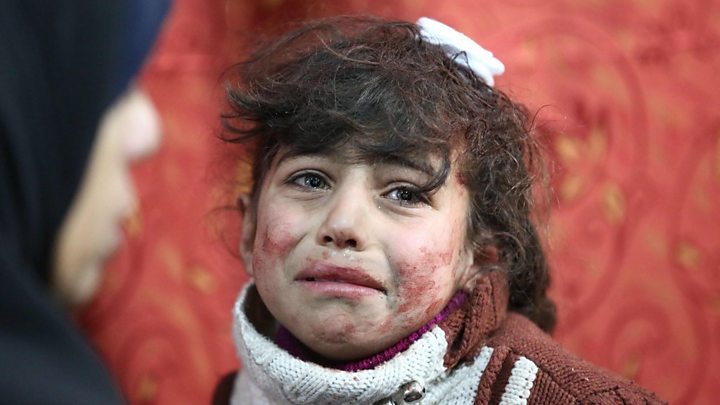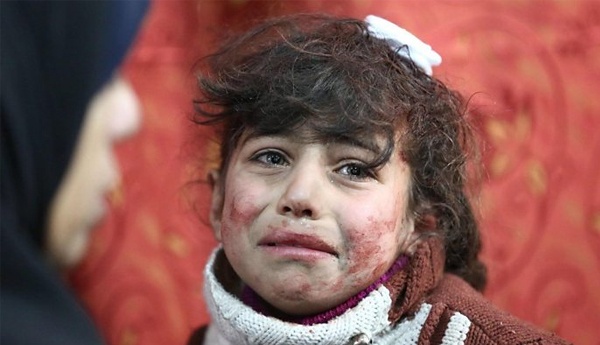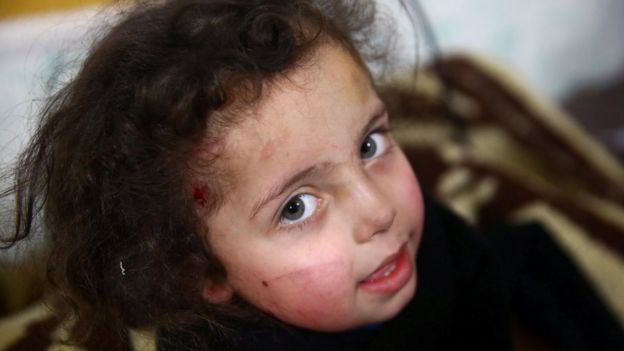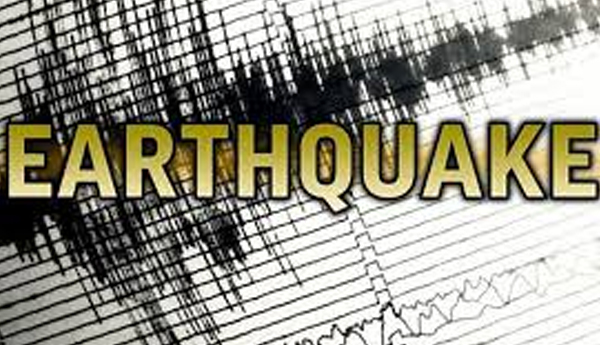Air strikes by the Syrian government on a rebel-held enclave have continued despite a ceasefire resolution passed by the UN Security Council on Friday.
Hundreds of people have been killed in a week of bombardment of the Eastern Ghouta enclave near the capital.
The Security Council unanimously called for a 30-day truce “without delay”, but some areas are not covered.
On Sunday Iran, an ally of the Syrian government, said it would target Damascus suburbs held by “terrorists”.
The UN resolution was agreed to allow for aid deliveries and medical evacuations, but operations against the biggest jihadist rebel groups are not covered by the truce.
-
Life in Eastern Ghouta – read residents’ stories
-
Syria conflict: Will powers end up in direct war?
-
Why is there a war in Syria?
What happened on Sunday?
Activist groups in Syria say government air strikes took place in the rebel enclave soon after the resolution was agreed in New York.
At least three people are reported to have died in the latest attacks, while one rebel group in the Eastern Ghouta said it had killed a number of government soldiers.
The strikes targeted the outskirts of Douma, the main town in the Eastern Ghouta, the UK-based Syrian Observatory for Human Rights (SOHR) said.
The SOHR also reported several casualties on both sides after Syrian government forces clashed with rebels in southern areas of the enclave.
Syrian forces launched a ground offensive to enter the Eastern Ghouta, both opposition and pro-government sources said on Sunday.
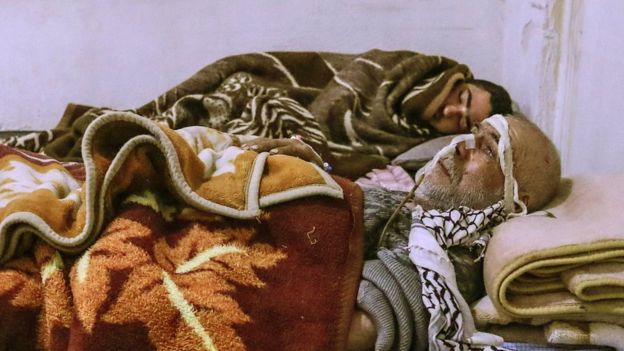 Image captionThe ceasefire was urged to allow for the delivery of aid to those in serious need
Image captionThe ceasefire was urged to allow for the delivery of aid to those in serious need
Meanwhile, Iran said that while it would “adhere” to the ceasefire, it would continue its military operations in areas around Damascus that were not covered, Reuters news agency reports.
“As the text says, parts of the suburbs of Damascus, which are specifically controlled by the terrorists of the Nusra Front and other terrorist groups, are not subject to ceasefire,” Iran’s military chief of staff, Maj Gen Mohammad Baqeri, is quoted as saying.
Iran, along with Russia, is a key supporter of Syrian President Bashar al-Assad and has played a vital role in enabling him to recapture territory across the country.
Who are the rebels not included in truce?
Rebels operating in the Eastern Ghouta include a variety of factions, and in-fighting between them has led to past losses of ground to the Syrian government.
The draft resolution had said that the ceasefire would not apply to operations against the Islamic State (IS) group, al-Qaeda and the Nusra Front.
The Nusra Front is a former al-Qaeda affiliate in Syria which leads an alliance of factions under the name of Hayat Tahrir al-Sham (HTS).
